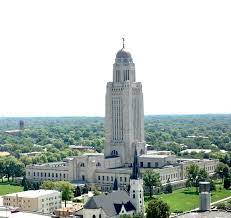![]()

The Nebraska Legislature gave final approval Wednesday to a tax-credit-funded program for scholarships to send students to private and religious schools. Opponents immediately vowed a referendum campaign to repeal it.
Backers of the bill said it would help students who weren’t doing well in public school, by giving them a choice of going to a different school, and give families a choice if they don’t approve of what or how public schools are teaching.
The so-called Opportunity Scholarship bill gives priority to several groups including low-income students and those from military families or needing special education.
Backers insisted it doesn’t appropriate taxpayer dollars directly toward private school vouchers, it gives dollar-for-dollar income tax credits to businesses, individuals, estates and trusts for donations to scholarship programs for private school tuition.
Businesses and individuals could donate up to $100,000 per year while estates and trusts could offer up to $1 million a year. The bill allocates $25 million a year for the next 2 years and up to $100 million after that to fund the tax credits.
Opponents complained the dollar-for-dollar credits make donations for those scholarships far more lucrative than other donations. A $10,000 donation to an opportunity scholarship would net a $10,000 tax credit for the donor, while the tax deduction on a similarly sized donation would be at the most only $644.
The Nebraska State Education Association, the state teachers’ union, says it will support a referendum drive to repeal the new law. The union called it “a convoluted tax scheme “that will hurt public schools and their students while “benefiting the uber-rich and corporations”.
NSEA President Jenni Benson said the majority of Nebraskans oppose giving public tax dollars to private schools and have rejected school voucher measures at the polls 3 times. She also said other states that have adopted “tax voucher schemes” ended up damaging public schools and communities.
Holding a referendum requires petition signatures from 5% of registered voters by early September. If there are enough signatures, the law would be put on hold until after a vote on repeal on next year’s general election ballot
